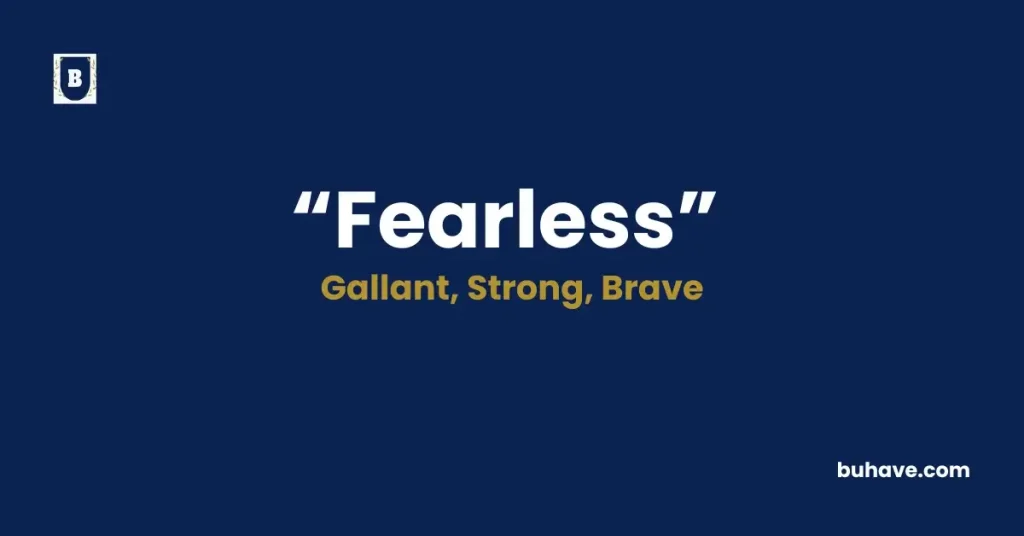The word ‘Fearless’ (Adjective) describes being without fear, showing courage and bravery even in the face of danger or uncertainty. In this guide, you’ll learn the full definition, synonyms, antonyms, etymology, and real-life examples of how to use ‘Fearless’ correctly in sentences.
Fearless Explained in Depth
A complete and detailed guide to the word ‘Fearless’ including meaning, definition, examples, etymology, synonyms, and antonyms.
Meanings of Fearless
Fearless means having no fear or being unafraid. It describes a person or action that displays courage, bravery, and a willingness to face danger, difficulty, or challenges without hesitation.
Definition
Fearless is an adjective that means completely free from fear, showing boldness and confidence in the face of risk or uncertainty. It conveys the idea of unwavering bravery and the ability to act despite potential dangers or challenges. A fearless individual embraces risks and is not easily discouraged by obstacles or threats.
Etymology
The word “fearless” comes from the combination of “fear” and the suffix “-less,” meaning “without.” Its roots trace back to the Old English “fǣr” meaning “danger” or “sudden attack,” which later evolved into “fear” as we know it today. The addition of “-less” emphasizes the absence of fear, resulting in a word that embodies bravery and courage.
Example Sentences
- She is a fearless leader who inspires everyone around her.
- Climbing the steep mountain required a fearless spirit.
- Despite the criticism, he remained fearless in his pursuit of justice.
Fearless Synonyms
- Brave
- Bold
- Courageous
- Dauntless
- Intrepid
- Unflinching
- Valiant
- Heroic
- Unfazed
- Undaunted
Fearless Antonyms
- Fearful
- Cowardly
- Timid
- Nervous
- Afraid
- Apprehensive
- Hesitant
- Terrified
- Anxious
- Scared
FAQs about Fearless
Here are some frequently asked questions (FAQs) about the word “Fearless”
1. What does “fearless” actually mean?
“Fearless” means to be completely without fear, showing courage and confidence even in the face of challenges or risks. It’s about being bold and daring when it matters most.
2. Can “fearless” describe a person’s attitude?
Yes, it often describes a person’s approach to life or challenges—someone who faces obstacles head-on without hesitation.
3. Is “fearless” always positive?
Mostly, yes. It’s generally seen as a positive trait because it represents bravery and courage. However, it can sometimes imply recklessness if it means ignoring danger without considering the consequences.
4. How is “fearless” different from “brave”?
While both suggest courage, “fearless” means lacking fear altogether, while “brave” means acting despite fear. Brave people feel fear but choose to overcome it.
5. Can “fearless” be used in both formal and informal settings?
Absolutely! “Fearless” is suitable for everything from essays and speeches to everyday conversations, making it a versatile and powerful word.

















